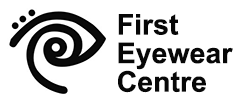Eyecare Services
Annual Eye Examinations
If your body has to go through an annual eye check up, what about your eyes?
A comprehensive eye examination can also reveal information about your systemic health.
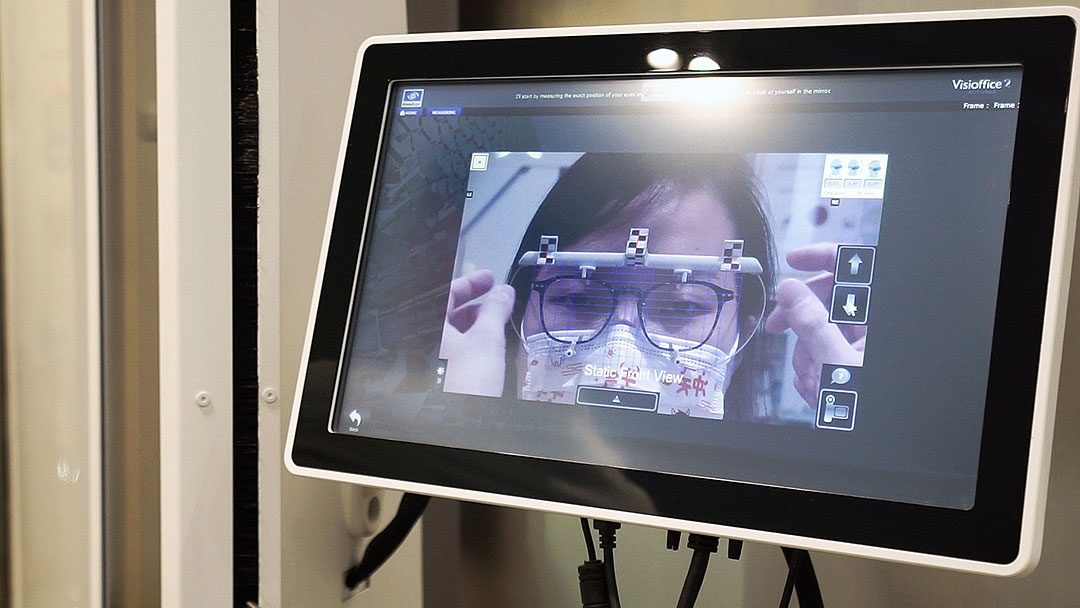
What Do We Test For
Your eyes are the windows to a better life. Undergo a comprehensive eye examination with our cutting edge technology and experienced optometrists to identify signs of eye conditions before it is too late. Contact lens wearers should also attend their routine eye health check annually or as advised by your optometrist to ensure their eyes are healthy for contact wearing.
- Detect Cornea Abnormalities
- Dry Eyes
- Cataract
- Eye Tumours
- Risk of angle closure
- Glaucoma
Basic vs Comprehensive Eye Examination
Basic Eye Examination: A prescription check
- A thorough check of the refractive power of the eye
- Our optometrists measure and refine your prescription so you can achieve optimal visual clarity and visual comfort
- Consultation fee: $25
- Fee is waived upon purchase of ophthalmic lenses or prescription eyewear
Comprehensive Eye Examination: An essential examination for early detection, diagnosis, and monitoring of eye conditions
- In addition to the prescription check, detailed eye health exams are conducted to assess the front and back parts of the eye
- With the aid of various diagnostic instruments, we are able to screen for eye and health conditions such as cataracts, glaucoma, diabetes and hypertension
Some eye conditions may not be accompanied by obvious symptoms. Therefore, a comprehensive eye examination is strongly recommended for early detection and management - Consultation fee: $150
- Consists of Slit Lamp Biomicroscopy, Subjective Refraction, Tonometry, Retinal Photography and Optical Coherence Tomography (OCT) Scan
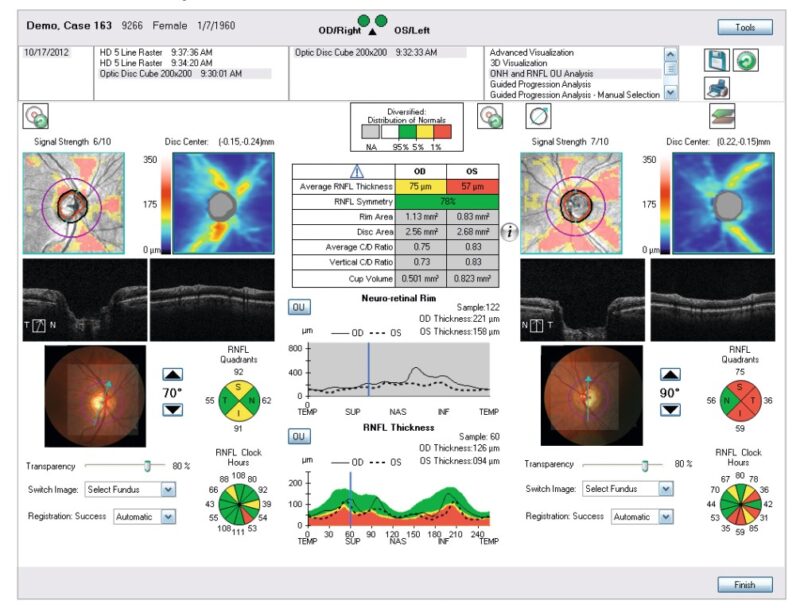
Comprehensive Eye Examination in detail
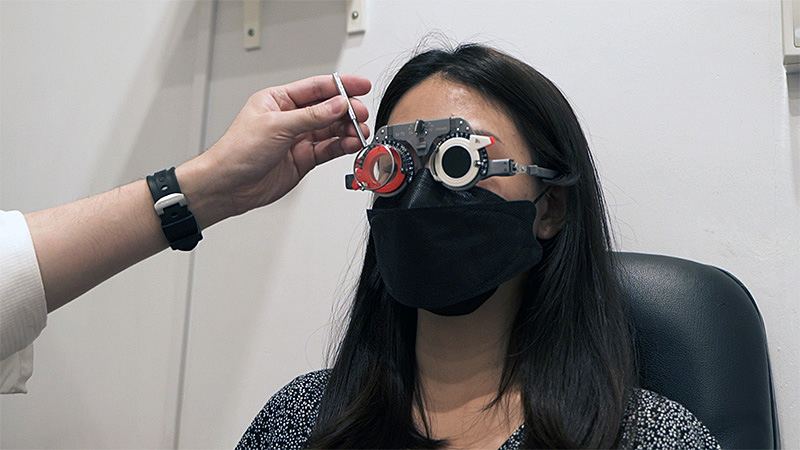
Subjective Refraction
A refraction test is part of an eye exam where the prescription of your eye is measured and refined to the optimal clarity and comfort by an optometrist. A comprehensive eye examination is recommended if you have not attended one for the past 2 years, or have a family history of:
Glaucoma
Diabetes
Hypertension etc.
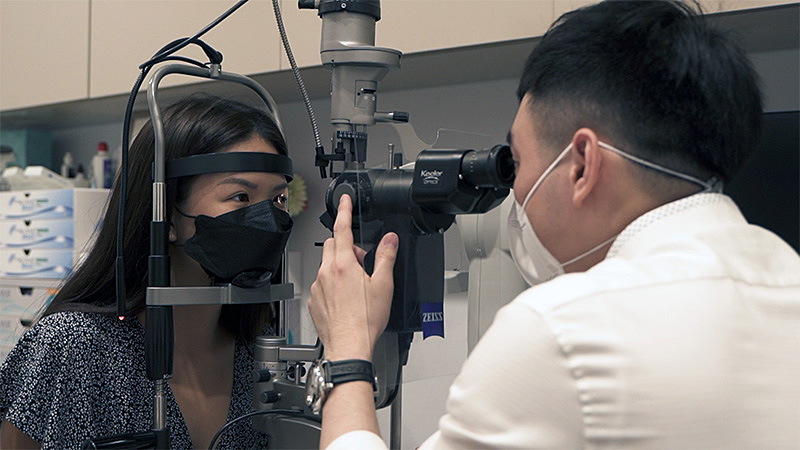
Digital Slit Lamp Bio-microscopy
Detailed examination of the front part of the eye health that includes the eyelids, conjunctiva, cornea, iris, and crystalline lens using a bio-microscope to screen for any abnormalities or problems.
It also allows optometrist to observe the living tissue of our eyes under magnification. Our optometrist utilises slit lamp photography as part of clinical documentation for any abnormalities of the eye, for example: cataract, UV tissue damage, suspected tumour, dry eyes and many others.
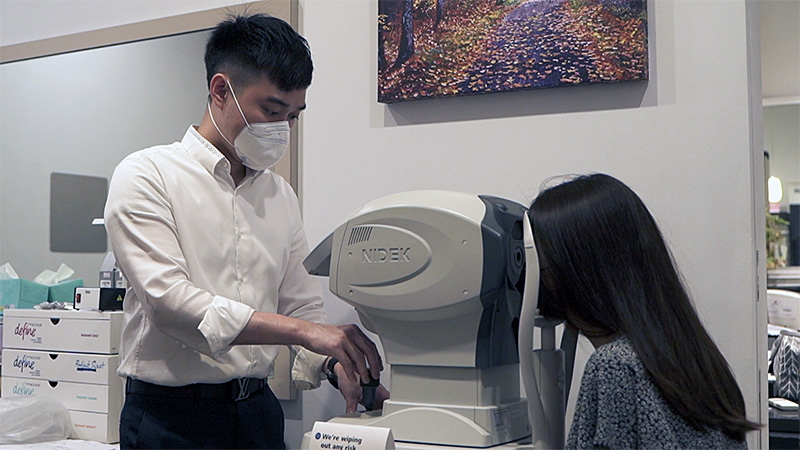
Tonometry
Measures internal eye pressure for the screening of glaucoma, an eye disease that can cause blindness when the optic nerve is damaged.
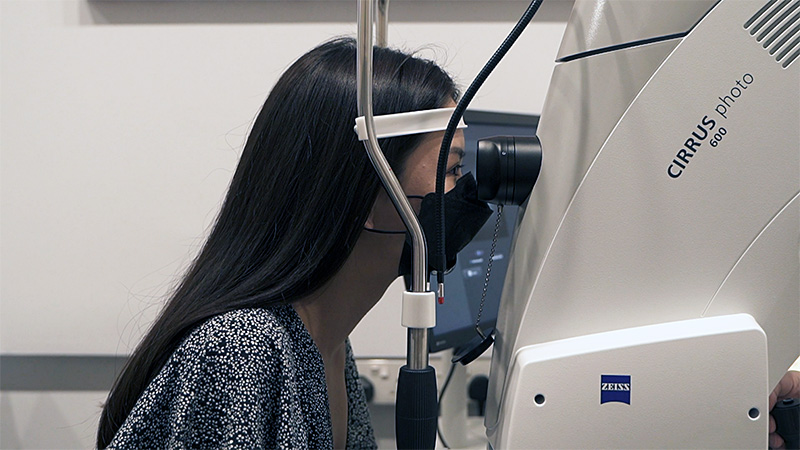
Retina Examination and OCT
Retinal examinations are a crucial part of a comprehensive eye exam. It can reveal conditions like hypertension, diabetic retinopathy, detached retina, and retina degeneration. Many eye conditions are not accompanied by obvious symptoms, making a retina examination necessary for early detection.
Optical Coherence Tomography (OCT) is a non-contact, 100% non invasive, topographic and biomicroscopic device that provides high resolution, cross-sectional digital images of live biological tissues in real time. Crucial test complimenting retina photography to obtain vital information for diagnosis of many eye conditions.
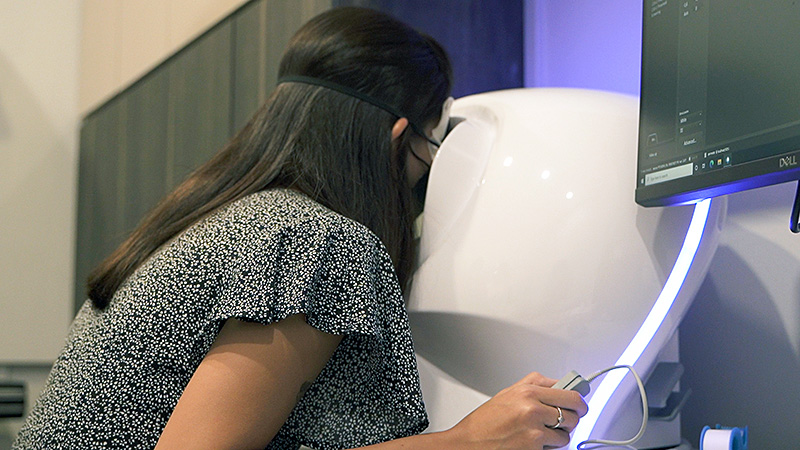
Visual Field Examination
The purpose of a visual field test is to detect changes in peripheral vision. It is one of the key tests to detect and monitor the progression of glaucoma.
Glaucoma is also called the “silent thief of sight” because it slowly damages the eyes and can cause permanent loss of sight. This damage to vision usually happens so slowly that you do not notice the gradual loss until it is in the advanced state. As glaucoma progresses, more and more of the peripheral vision is lost until eventually, in very late and advanced disease, the central vision is also affected.
There are treatments to delay potential vision loss, but no cure, making glaucoma a leading cause of blindness all over the world. Early detection is the key to preserve your vision!
A visual field exam may also be used to investigate visual changes a result of persistent headaches, neurological disorders, stroke, ocular trauma, and other systemic issues.
